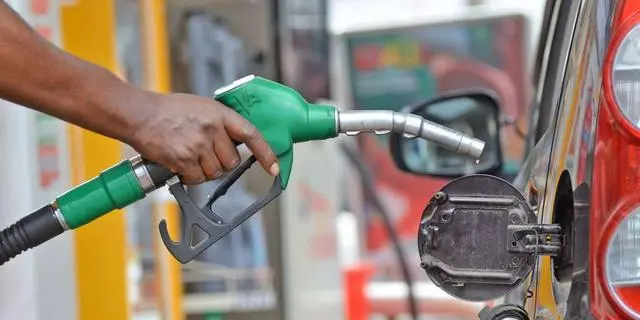South Africa has officially overtaken Nigeria as Africa’s largest importer of refined petroleum products, marking a significant shift in the continent’s energy dynamics. This change, detailed in a new report by energy consultancy CITAC, reflects contrasting developments in both countries’ fuel supply strategies and refining capabilities.
According to CITAC, South Africa imported approximately 4.2 million tonnes of refined petroleum products in the first quarter of 2025, a notable increase that puts the country ahead of Nigeria, which imported 3.1 million tonnes over the same period. Projections for the rest of the year suggest that South Africa may import up to 15.5 million tonnes in total, while Nigeria’s fuel imports are expected to fall to around 6.4 million tonnes.

At the center of Nigeria’s declining fuel imports is the Dangote Refinery, a massive industrial project that began operations in early 2024. The refinery, with a capacity of 650,000 barrels per day, is one of the largest in the world and has begun to meet a significant portion of Nigeria’s domestic fuel demand. Since the start of 2025, the facility has been supplying over 60% of Nigeria’s petrol consumption needs, drastically reducing the country’s reliance on imported fuel.
Energy analysts note that this development could save Nigeria up to $10 billion in foreign exchange annually—funds that were previously spent on fuel imports. It also marks a pivotal point in Nigeria’s long-standing struggle with fuel scarcity, high import bills, and the underutilization of its state-owned refineries, most of which have operated well below capacity for decades.
Elitsa Georgieva, Executive Director of CITAC, commented on the shift: “Nigerian imports are dropping as a result of the continued operation of Dangote. Since the beginning of this year, South African imports have been consistently the highest in sub-Saharan Africa.”
While Nigeria moves towards greater self-sufficiency, South Africa is facing a very different scenario. The country’s increase in fuel imports is primarily due to the decline in its domestic refining capacity. Over the past few years, several major refineries in South Africa have shut down or suspended operations. These include the Sapref refinery in Durban, which was jointly owned by BP and Shell, and the Engen refinery, also located in Durban.
Sapref ceased operations in 2022 following damage from floods and safety concerns, while Engen’s plant was decommissioned as part of a long-term strategy to convert the site into a fuel import terminal. With the closure of these facilities, South Africa is now forced to import over 60% of its refined fuel needs from overseas suppliers.
In response to growing concerns over energy security, the South African government acquired the Sapref refinery in 2023. However, the facility remains idle, and there is no clear timeline for its rehabilitation. The lack of immediate refining alternatives has led to greater reliance on global fuel markets and international traders, exposing the country to fluctuations in price and supply chain risks.
The situation presents a stark contrast in outcomes. Nigeria, long known for its paradoxical status as an oil-producing nation heavily dependent on fuel imports, is now on the path to becoming a net exporter of refined products. South Africa, which previously maintained a more balanced approach between imports and local refining, now finds itself increasingly vulnerable to external fuel markets.
Industry experts say the shift could have far-reaching consequences for the region. Nigeria’s reduced import demand may reshape fuel trade routes across West Africa, while South Africa’s increased need for fuel could attract more competition among global suppliers seeking to meet the country’s growing consumption.
Moreover, the development highlights the importance of infrastructure investment and policy reform in achieving energy security. Nigeria’s leap forward was made possible by private sector investment in refining, backed by policy support and a strategic push to reduce import dependency. In contrast, South Africa’s lack of long-term planning and underinvestment in refinery maintenance has created a significant gap in its energy supply chain.
The shift also has implications for national budgets. Nigeria’s ability to conserve foreign exchange could help stabilize its currency and improve its balance of trade, especially at a time when the country faces inflationary pressures and high debt servicing costs. For South Africa, however, the increasing import bill could put additional strain on public finances and affect the cost of living as global oil prices remain volatile.
As both countries continue to adjust to these new realities, observers say the broader lesson for African nations lies in the value of domestic refining capacity. With energy demand across the continent expected to rise in the coming years, the ability to process crude oil locally may prove crucial for economic resilience, job creation, and long-term development.
Support InfoStride News' Credible Journalism: Only credible journalism can guarantee a fair, accountable and transparent society, including democracy and government. It involves a lot of efforts and money. We need your support. Click here to Donate
